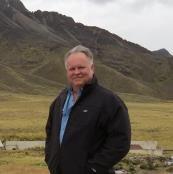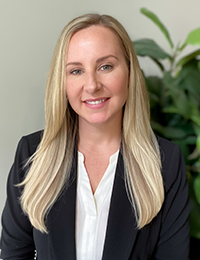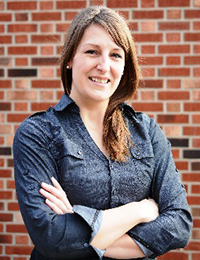- Demonstrate a fundamental grasp of classic and contemporary theories of society and their origins with the founders of the discipline.
- Identify connections between theory and research in the construction of scientific knowledge.
- Demonstrate proficiency
with fundamental data analysis.
- Express sociological ideas clearly and coherently both in writing and in oral presentations.
Frequently Asked Questions
What courses are required to complete the program?
What employment opportunities are available with a sociology degree?
The Sociology and Anthropology program provides students with practical and marketable skills for a competitive and ever-changing job market. Our students develop critical thinking and analytical problem-solving skills, as well as an ability to communicate complex
ideas in writing and oral presentations. Our graduates are also versed in both qualitative and quantitative research methods. As a result, there is tremendous variety in the kinds of careers students pursue after graduation. Graduates with a sociology
degree can find employment in the following areas: the business sector; community services; higher education; law; health services; and local, state, or federal social services. Below is a sample of career paths sociology graduates may pursue
based on their individual skills and interests:
- Consumer and Marketing Research
- Public Relations
- Human Resources (personnel management)
- Non-Profit Agencies
- Survey Research
- Urban Planning
- Community Development
- Policy Analyst
- Group Advocacy (e.g. patient or victim advocacy)
- University Recruitment, Admissions, or Advising
- University Student Affairs
- Law Enforcement
- Criminal Justice
- Judicial Affairs
- Probation and Parole Administration
In addition, many students complete a bachelor’s degree in sociology before pursuing a graduate degree in sociology, social work, law, criminal justice, or other related fields.
Do you provide job or internship placement?
Yes. Bellarmine guarantees every student the opportunity to have an internship, develop a career plan and build a professional network. The following are a few of the organizations that have provided part-time internship positions for Bellarmine Sociology
students:
- The Family Place
- The Center for Women and Families
- The Commonwealth Attorney’s Office
- The State Data Center
- United Way
- Dare to Care
- Big Brothers/Big Sisters
- The Spouse Abuse Center
- Child Protective Services
- Dismas halfway houses
- The Louisville Police’s Child Abuse and Exploitation Unit
- Kentucky State Reformatory
- The Kentucky Department of Probation and Parole
- The Public Defender’s Office
- The FBI
Is financial aid available?
Please go to Bellarmine’s financial aid website for detailed information on financial aid packages. Additionally, students can work
with our Faculty Development Center to apply for grants and awards outside of the Bellarmine offerings.
How many hours can I expect to spend studying outside of class time?
Each student has their own learning style so this can vary greatly. As a rule of thumb, expect to spend an average of two hours studying for every hour you spend in class.
Graduates of Bellarmine’s Sociology Department have had successful careers in administrative or research positions in various social agencies; in corrections; in counseling adult and juvenile offenders; in police work, including the FBI and other
law enforcement agencies; and in private-sector business enterprises such as marketing and sales. Many also go on to complete graduate work in sociology, social work, and related disciplines, or to enter law school.
On- and Off-Campus Experiences
The Compassio Learning Community is designed for students who wish to engage in dialogue and experiences focused on four pillars: compassion, civic engagement, civility and community. It challenges students to think morally and ethically
about issues of social justice so that they may be more enlightened citizens of a diverse and inclusive community. The CLC educates students in issues of social justice by engaging in meaningful and lasting service to the community. Students in this
community should have a special interest in creating a more inclusive society and be willing to engage in challenging dialogue about current societal issues of injustice and intolerance.
Service learning is an increasing component of classes in sociology, criminal justice studies, and anthropology, involving students in projects outside the classroom where they can engage the diverse communities that make up Louisville.
These reciprocal relationships allow us to move beyond textbooks to learn about social, cultural, economic, and political issues, while making meaningful contributions to our city.
Here is a quick snapshot of a few of our faculty members. Read profiles of all of our distinguished faculty.

Frank Hutchins, Ph.D.
Frank Hutchins is Associate Professor of Anthropology at Bellarmine. He earned his BA from the University of Kentucky, his MA from the Patterson School of Diplomacy at UK, and his Ph.D. in cultural
anthropology from the University of Wisconsin-Madison. His research focuses on cultural change among indigenous peoples in the Amazonian and Andean regions of Ecuador. He was a Peace Corps volunteer in Ecuador and continues to do research
and work there as director of the University of Wisconsin-Madison Summer Field School in Ecuador for the Study of Language, Culture, & Community Health. At Bellarmine, he teaches Introduction to Cultural Anthropology; Introduction
to Human Geography; Anthropology of Mind and Body; Anthropology of the Supernatural and Sacred; Anthropology and the Environment; and Theory and Methods in Anthropology. Dr. Hutchins also serves as coordinator of the IDC 301 courses. He
is the co-editor, along with Dr. Patrick Wilson, of Editing Eden: A Reconsideration of Identity, Politics, and Place in Amazonia (University of Nebraska Press, 2010). He is a native of Bardstown, Ky., and he and his wife, Christine,
have a daughter, Anna.
Office: Pasteur Hall 110A • 502.272.8393 • fhutchins@bellarmine.edu

Dr. Ainsley Lambert-Swain
Originally from Louisville, Ainsley Lambert-Swain earned her B.A. in sociology from Morehead State University, followed by an M.A. and Ph.D. in sociology from the University of Cincinnati.
She joined the faculty at Bellarmine University as an assistant professor of Sociology in 2018. She teaches several sociology courses, including Introduction to Sociology, Social Inequality, Contemporary Social Problems, Race and Ethnicity,
and the introductory course for the African and African American Diaspora Studies Minor. Her research interests include racial and ethnic inequality in the U.S., critical race theory, and racial identity processes, including how racial
identities are negotiated in interaction. Her current research examines how partners in interracial relationships understand and navigate racial meanings across racially segregated spaces. At her previous institution and during her
time here at Bellarmine, she has dedicated herself to creating an inclusive campus, serving on university committees and leading workshops on topics related to diversity, equity, and inclusion. She is a member of the American Sociological
Association and the Society for the Study of Social Problems. When she is not teaching or doing research, she enjoys traveling to new places, trying new foods, and spending time with her family.
Office: Pasteur Hall 108C • 502.272.8172 • alambert-swain@bellarmine.edu

Heather Pruss, Ph.D.
Heather Pruss earned her BA and Ph.D. in Criminal Justice from Indiana University. She has taught courses on a wide variety of topics, including (Introduction to) Criminal Justice, Criminological
Theory, Research Methods, Courts, Capital Punishment, and Law & Society. At Bellarmine, she hopes to develop new courses focused on pertinent social/criminal justice issues, such as wrongful conviction or defending the accused.
Broadly speaking, Heather’s research focuses on how oft-marginalized individuals experience the United States court system. She has done work on how capital jurors make life or death decisions, how indigent clients perceive their
public defenders, and how family members and friends of homicide victims navigate case adjudication. Heather looks forward to engaging with students and community members through her research agenda and has a strong interest in experiential
approaches to pedagogy.
Heather enjoys spending time outdoors, especially with her partner and their animal pack. She grew up in nearby Santa Claus, Indiana.
Office: Pasteur Hall 108A • 502.272.8241 • hpruss@bellarmine.edu

Kaitlyn Selman, Ph.D.
Kaitlyn Selman is a sociologically trained critical criminologist, having received her BA in sociology from the University of Michigan, her MA in sociology from the University of South Florida,
and her Ph.D. in criminology from Old Dominion University. In the fall of 2020, Kaitlyn will be teaching courses aimed at introducing the criminal (in)justice system and explaining crime and punishment through various criminological
theories. Her research unearths the ways in which the logics of racial capitalism ensnare marginalized people in webs of carceral control and social and economic precarity. Specifically, it focuses on how the conditions of differentiation
and dispossession work to reproduce oppressive conditions for young people, as well as the strategies of opposition and transformation that marginalized youth have developed in response. Her current research project maps the terrain
of freedom being carved by abolitionist youth justice organizations across the US, and she intends to highlight the transformative work being carried out by youth organizations in and around Kentucky. When not in the classroom or glued
to the computer, she spends her time with her husband Justin, baby Jack, and their dogs Winston and Sadee.
Office: Pasteur Hall 164 • kselman@bellarmine.edu
Crash Course Sociology Preview
Still not sure if sociology is right for you? This video explains what sociologists do in just over a minute.
Bellarmine University is accredited by the Southern Association of Colleges and Schools Commission on Colleges to award baccalaureate, master’s and doctorate degrees.